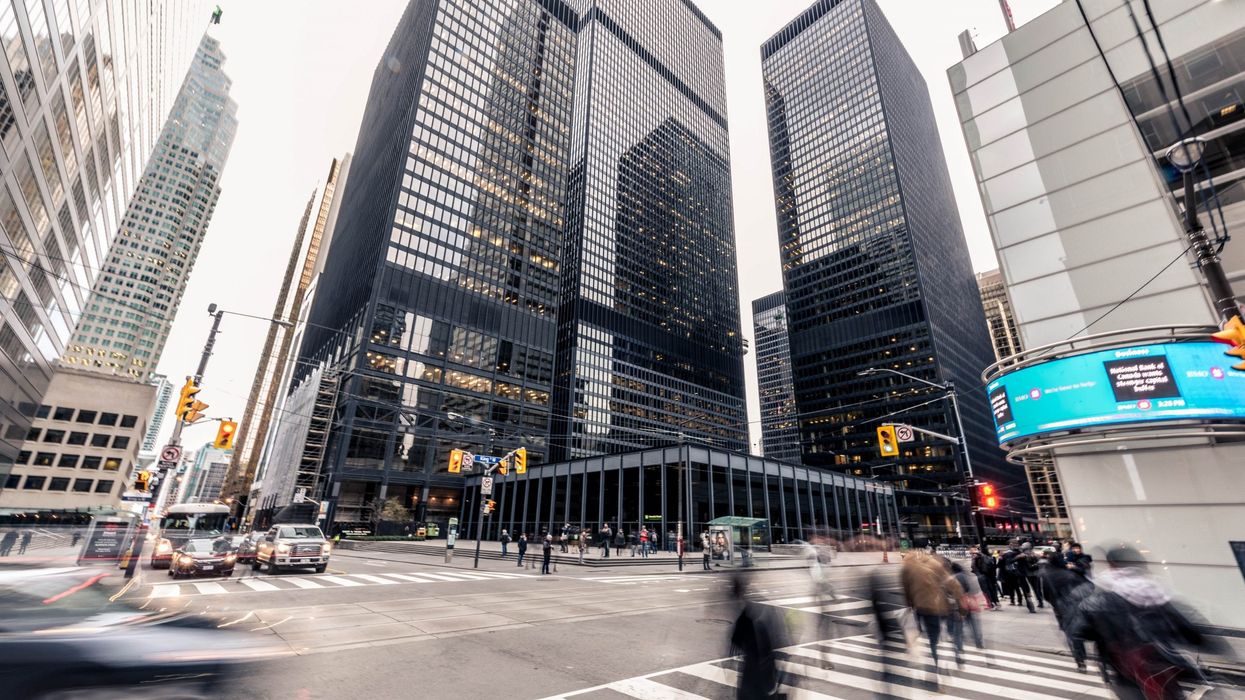The global property market saw a drop in Chinese investors in 2018, but no city experienced a more drastic decline than Vancouver. Overall, investments in commercial real estate fell by more than 60 per cent as a result of new taxes, Bloomberg reports.
In addition to the 20 per cent tax placed on foreign buyers, Vancouver also has a “speculation tax” and “wealth tax.” The former was introduced last year and cracks down on foreign and domestic buyers who don’t live in the homes they own and don’t pay income tax. The latter is a progressive tax that places higher percentage rates on more expensive properties.
READ: These Unlikely Canadian Cities Are A Hot Spot For Chinese Home Buyers
These new taxes have deterred Chinese investors from the Vancouver market, causing many to look at Toronto instead.
Last year, investments in Vancouver dropped to just $350 million, when the previous two years had been over $1 billion, according to CBRE Ltd., data. Toronto, however, experienced a modest increase in Asian investments from 2017 to 2018, equalling $526 million.
READ: Spring Housing Market Predictions: What To Expect In Toronto
But it’s not just new taxes in Vancouver that have encouraged Chinese investors to turn to Toronto. Bal Atwal, of the brokerage firm Avison Young, told Bloomberg that Chinese investors previously made bets on “underlying development and land value” in Vancouver, but “they’re looking at Toronto now because they’re seeing a better arbitrage on that than they are here.”
Additionally, Toronto is becoming more appealing thanks to its huge immigrant and millennial population, David Ho, executive vice president at CBRE Ltd., told Bloomberg. This is a big selling point when compared to the West Coast city, which is considered more of a “retirement market.”
READ: Mortgage And HELOC Payments Are Climbing In Toronto And Vancouver
Vancouver and Toronto have always been hot spots for foreign buyers, and a recent Housing Market Insight report proves this.
Conducted by the Canada Housing and Mortgage Corporation (CHMC) in partnership with Statistics Canada, the study revealed how many non-residents own property in these cities.
READ: This Video Captures The Past, Present And Future Of Toronto’s Skyline
On the West Coast, the majority of non-residents (55 per cent) owned condos. Between 2016 and 2017, nearly 20 per cent of new condos built had at least one non-resident. As for Toronto, that number was just nine per cent.
“We are seeing that owning new and expensive property in Canada doesn’t necessarily mean you actually live in the country,” Andy Yan, the director of the City Program at Simon Fraser University, told the Globe and Mail after analyzing the data.
READ: Even Financially Secure Single Home Buyers Hesitate On Buying In Canada
Although Asian investors are now heading to Toronto for commercial property, Chinese home buyers are actually moving away from Canada’s biggest cities. A previous report by Juwai.com, a real estate portal for Chinese buyers, found that foreign buyers are most interested in Halifax and Calgary, rather than Toronto and Vancouver, for homes.
Again, foreign buyer taxes, as well as high home prices, both contribute to this change of interest among Chinese buyers, according to Juwai CEO Carrie Law.





















